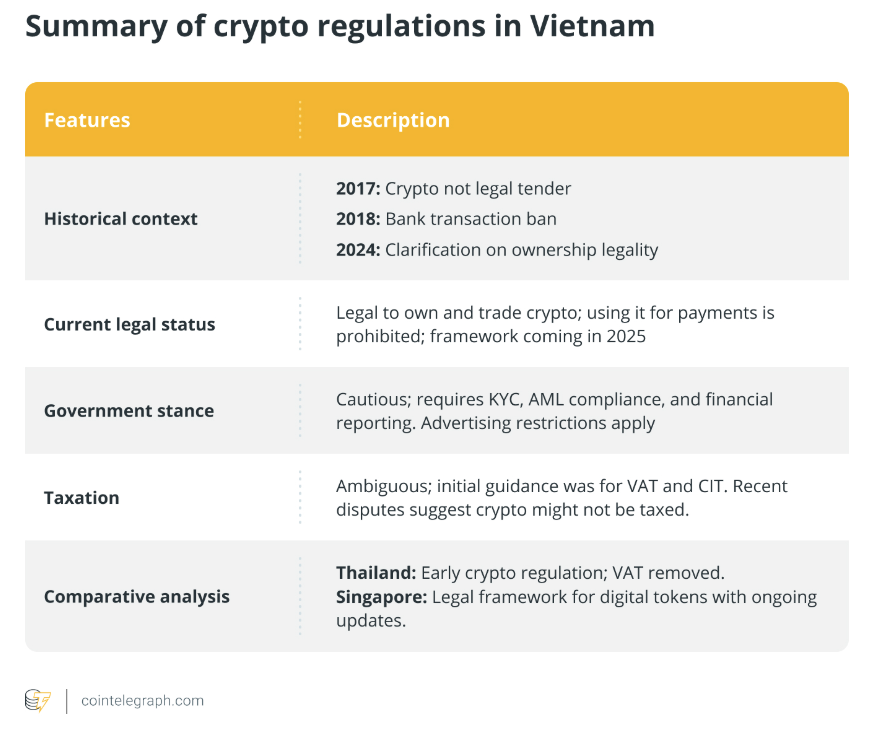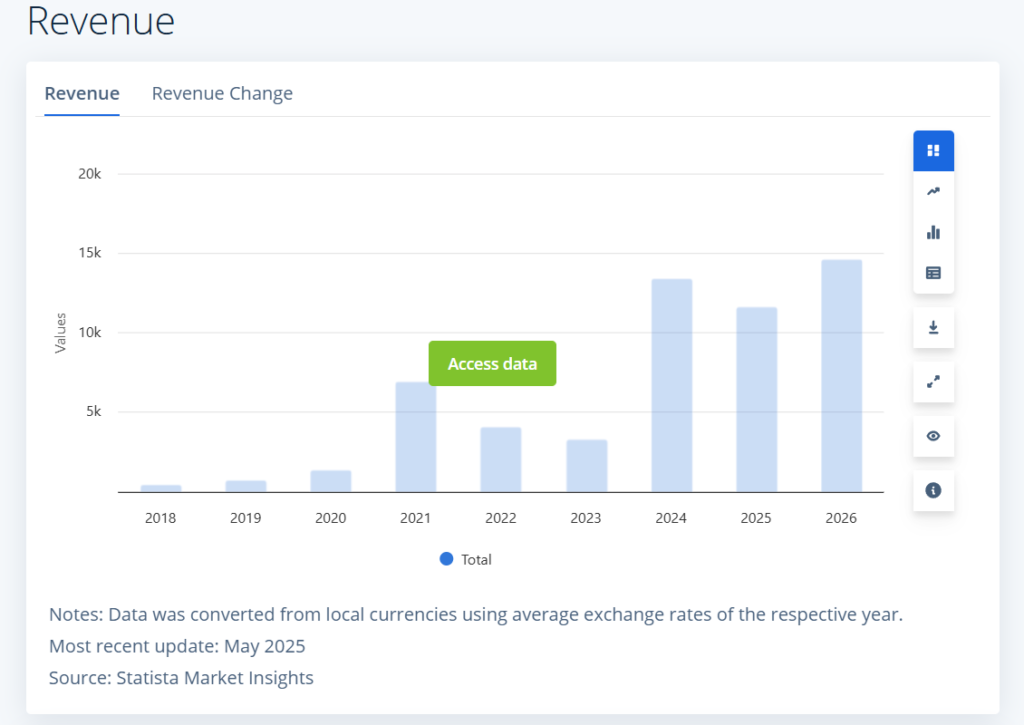Myths vs. Reality: Vietnam Crypto Law and VDA Rules in 2025
November 2, 2024

Vietnam’s 2025 Crypto Law: Myth-Busting in a Time of Regulatory Change
The rollout of the Vietnam crypto law in 2025 marks a major regulatory milestone—but it’s also triggered confusion and misinformation. From Telegram threads to café chatter in Hanoi’s startup district, there’s no shortage of bold claims about what’s legal, what’s banned, and how digital assets can be used.
Let’s take a closer, fact-based look at the most persistent myths—and unpack what VDA rules in Vietnam really mean for traders, investors, and builders.
Myth 1: “Crypto is still illegal in Vietnam.”
Reality: Not anymore.
Crypto is no longer an unregulated gray zone. While cryptocurrency isn’t recognized as legal tender, crypto trading in Vietnam is now legal under licensed conditions. The Vietnam crypto law defines Virtual Digital Assets (VDAs) and allows their trading through authorized platforms.
Users must verify their identities, and platforms must comply with anti-money laundering rules—but participating in the market is officially permitted under the law.
Myth 2: “Vietnam banned international exchanges.”

Credit from Cointelegraph
Reality: Not quite—but they face new restrictions.
Foreign exchanges can still serve Vietnamese users—but only if they obtain proper licensing and meet the same operational standards required of domestic platforms. If they don’t, they risk being geo-blocked or penalized.
This shift is part of Vietnam’s strategy to build a safer, locally accountable trading environment. The new VDA licensing requirements in Vietnam apply equally to all service providers.
Myth 3: “You can’t launch tokens in Vietnam anymore.”
Reality: Token issuance is possible—but regulated.
Under the VDA rules, issuing a new digital token in Vietnam is subject to a formal approval process. The issuer must submit documentation, demonstrate financial security, and align with usage categories defined by the Ministry of Finance.
This doesn’t mean token launches are over—it means they’re structured, and fly-by-night schemes are less likely to sneak through.
Myth 4: “All crypto wallets are monitored.”
Reality: Only wallets connected to licensed platforms are subject to checks.
Self-custodial wallets remain outside the direct reach of regulators—for now. But if you connect your wallet to a licensed Vietnamese exchange, activity may be monitored under the country’s new compliance obligations.
The focus isn’t surveillance—it’s enforcement. The government is trying to curb money laundering and terrorism financing, not micromanage individual users.
Myth 5: “The law favors big corporations and shuts out startups.”
Reality: It does raise the bar—but not impossibly.
Yes, startups now face stricter hurdles. The VDA licensing requirements in Vietnam ask for proof of cybersecurity readiness, financial solvency, and a clear business model.
That said, small firms with solid compliance strategies can still qualify. The goal isn’t to block innovation—it’s to reduce systemic risk, especially after high-profile exchange collapses in global markets.
Myth 6: “Crypto taxes in Vietnam are already finalized.”

Credit from AHK Vietnam
Reality: Not yet.
While Vietnam’s crypto law outlines operational rules, taxation is still a work in progress. Investors don’t yet have a finalized capital gains framework. However, authorities have hinted that clearer tax policies will follow in a separate legal rollout—possibly by 2026.
Until then, traders are advised to keep records and prepare for retroactive tax obligations.
Myth 7: “This law will kill Vietnam’s crypto scene.”
Reality: It’s evolving—not dying.
There’s anxiety, yes—but also maturity. Vietnam’s young, tech-savvy population continues to engage with digital assets. And the introduction of crypto regulation in Vietnam is seen by many as a sign that the government wants to work with—not against—the ecosystem.
The law aims to weed out bad actors and pave the way for more serious investment, both local and foreign.
Conclusion: Cutting Through the Noise on Vietnam Crypto Law

Credit from Statista
In 2025, Vietnam crypto law and its accompanying VDA rules aren’t the end of crypto—they’re the beginning of something more structured. While myths and fears continue to swirl, the reality is far more nuanced: regulation is here, but so is opportunity.
For those willing to play by the rules, Vietnam’s crypto future may be just getting started.

